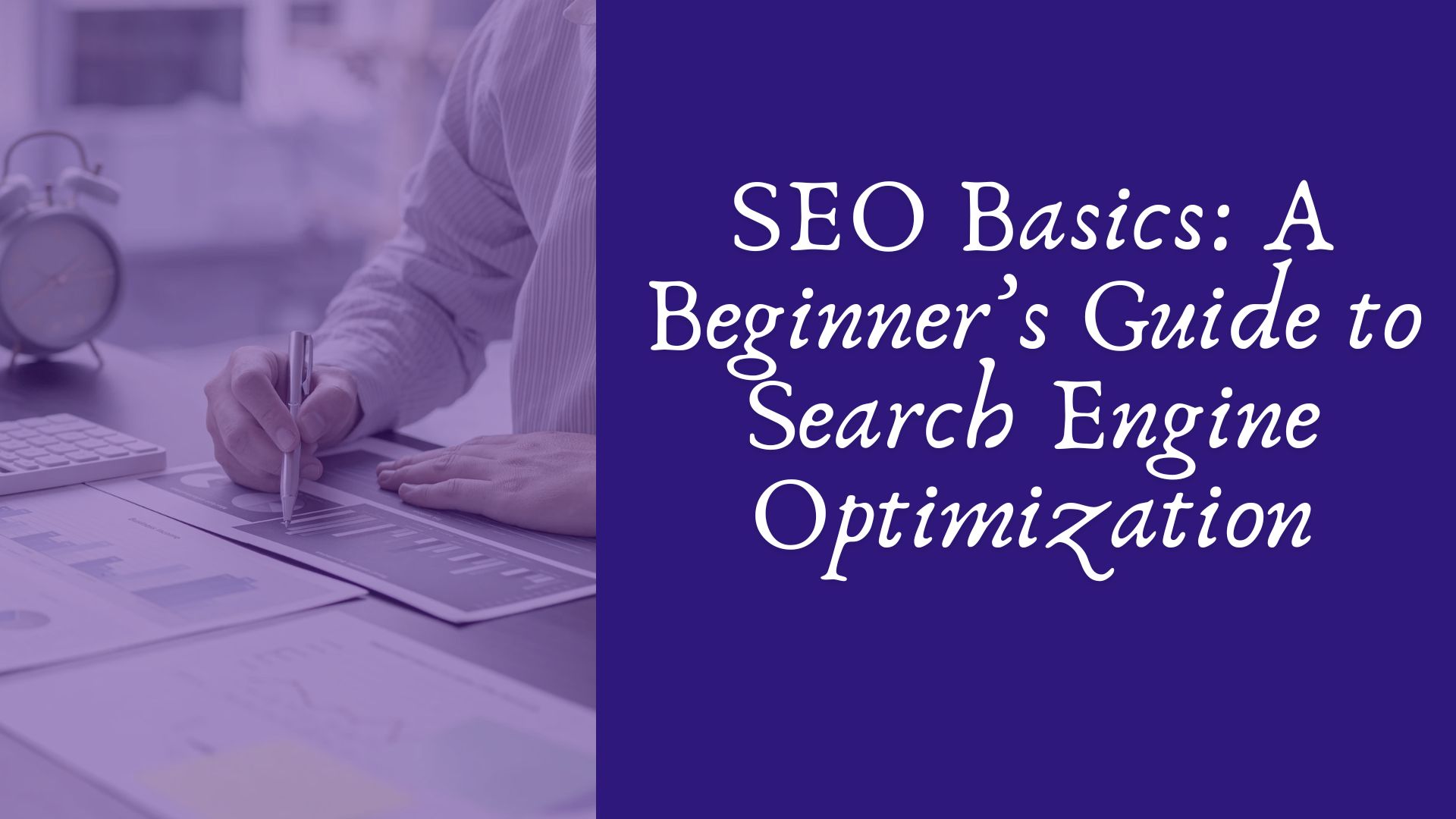Search Engine Optimization (SEO) is the cornerstone of digital marketing. For anyone looking to establish a strong online presence, understanding the basics of SEO is critical. This guide is designed to introduce you to the fundamental concepts of SEO, helping you drive traffic, improve visibility, and achieve your online goals.
What is SEO?
SEO refers to the practice of optimizing your website to rank higher on search engine results pages (SERPs). By enhancing your site’s relevance and authority, you make it more attractive to search engines like Google, Bing, and Yahoo.
Why is SEO Important?
- Increases Visibility: A higher ranking on SERPs means more people can find your website.
- Builds Credibility: Websites that appear on the first page are often perceived as more trustworthy.
- Drives Organic Traffic: Unlike paid advertising, organic traffic doesn’t cost you anything.
Key Components of SEO
Keyword Research
Keywords are the terms users type into search engines. Identifying and targeting the right keywords is crucial.
How to Conduct Keyword Research:
- Use tools like Google Keyword Planner, Ahrefs, or SEMrush.
- Focus on long-tail keywords (e.g., “best SEO tools for beginners”) for less competition and higher relevance.
- Analyze competitors to identify potential keyword opportunities.
On-Page SEO
This involves optimizing individual pages on your website to rank higher and attract relevant traffic.
Key On-Page Elements:
- Title Tags: Include your primary keyword and keep it under 60 characters.
- Meta Descriptions: Provide a concise summary of the page content and include keywords.
- Header Tags (H1, H2, H3): Use structured headers to improve readability.
- URL Structure: Keep URLs short and descriptive.
- Content Optimization: Publish high-quality, original, and keyword-rich content.
Technical SEO
Technical SEO ensures that your website is easy for search engines to crawl and index.
Focus Areas:
- Site Speed: Use tools like Google PageSpeed Insights to improve loading times.
- Mobile-Friendliness: Ensure your site is responsive and optimized for mobile devices.
- XML Sitemaps: Submit a sitemap to search engines to help them index your site.
- Secure Connection (HTTPS): A secure site boosts trust and rankings.
Off-Page SEO
Off-page SEO focuses on building your website’s authority through external efforts.
Strategies:
- Backlinks: Earn high-quality links from authoritative websites.
- Social Media Marketing: Share content on social platforms to increase visibility.
- Guest Blogging: Publish articles on reputable sites to build backlinks and credibility.
Local SEO
If you’re targeting a specific geographic area, local SEO is essential.
Tips for Local SEO:
- Optimize your Google My Business profile.
- Encourage customer reviews and respond to them.
- Use location-specific keywords.
Common SEO Mistakes to Avoid
- Keyword Stuffing: Overusing keywords can lead to penalties.
- Ignoring Mobile Optimization: With most searches happening on mobile devices, a responsive site is non-negotiable.
- Duplicate Content: Ensure all content is unique to avoid being flagged by search engines.
- Neglecting Analytics: Use tools like Google Analytics to monitor performance and make data-driven decisions.
Measuring SEO Success
To evaluate your SEO efforts, track the following metrics:
- Organic Traffic: Monitor the number of visitors from search engines.
- Bounce Rate: A lower bounce rate indicates user engagement.
- Keyword Rankings: Check how your targeted keywords rank over time.
- Backlink Profile: Assess the quality and quantity of inbound links.
SEO Tools for Beginners
Here are some beginner-friendly tools to get you started:
- Google Analytics: For tracking traffic and user behavior.
- Google Search Console: To monitor indexing and resolve issues.
- Yoast SEO: A WordPress plugin for on-page SEO.
- Ubersuggest: For keyword research and competitive analysis.
Staying Updated in the SEO World
SEO is an ever-evolving field. Search engines frequently update their algorithms, so staying informed is vital. Follow reputable blogs like Moz, Search Engine Journal, and Neil Patel’s blog for the latest updates.
Conclusion
SEO may seem complex at first, but by mastering the basics, you lay the foundation for long-term success. Focus on creating high-quality content, optimizing your website, and building strong relationships online. With consistent effort, you can achieve significant growth and visibility in the digital landscape.
